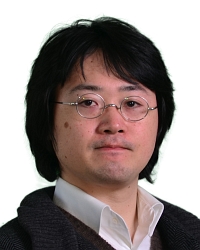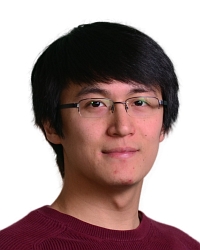TR2023-097
AutoHLS: Learning to Accelerate Design Space Exploration for HLS Designs
-
- , "AutoHLS: Learning to Accelerate Design Space Exploration for HLS Designs", International Midwest Symposium on Circuits and Systems (MWSCAS), DOI: 10.1109/MWSCAS57524.2023.10405914, August 2023.BibTeX TR2023-097 PDF
- @inproceedings{Ahmed2023aug2,
- author = {Ahmed, Md Rubel and Koike-Akino, Toshiaki and Parsons, Kieran and Wang, Ye},
- title = {AutoHLS: Learning to Accelerate Design Space Exploration for HLS Designs},
- booktitle = {International Midwest Symposium on Circuits and Systems (MWSCAS)},
- year = 2023,
- month = aug,
- publisher = {IEEE},
- doi = {10.1109/MWSCAS57524.2023.10405914},
- issn = {1558-3899},
- isbn = {979-8-3503-0210-3},
- url = {https://www.merl.com/publications/TR2023-097}
- }
- , "AutoHLS: Learning to Accelerate Design Space Exploration for HLS Designs", International Midwest Symposium on Circuits and Systems (MWSCAS), DOI: 10.1109/MWSCAS57524.2023.10405914, August 2023.
-
MERL Contacts:
-
Research Areas:
Artificial Intelligence, Electronic and Photonic Devices, Machine Learning
Abstract:
High-level synthesis (HLS) is a design flow that leverages modern language features and flexibility, such as complex data structures, inheritance, templates, etc., to prototype hardware designs rapidly. However, exploring various design space parameters can take much time and effort for hardware engineers to meet specific design specifications. This paper proposes a novel framework called AutoHLS, which integrates a deep neural network (DNN) with Bayesian optimization (BO) to accelerate HLS hardware design optimization. Our tool focuses on HLS pragma exploration and operation transformation. It utilizes integrated DNNs to predict synthesizability within a given FPGA resource budget. We also investigate the potential of emerging quantum neural networks (QNNs) instead of classical DNNs for the AutoHLS pipeline. Our experimental results demonstrate up to a 70-fold speedup in exploration time.
Related News & Events
-
NEWS MERL Researchers give a Tutorial Talk on Quantum Machine Learning for Sensing and Communications at IEEE VCC Date: November 28, 2023 - November 30, 2023
Where: Virtual
MERL Contacts: Toshiaki Koike-Akino; Pu (Perry) Wang
Research Areas: Artificial Intelligence, Communications, Computational Sensing, Machine Learning, Signal ProcessingBrief- On November 28, 2023, MERL researchers Toshiaki Koike-Akino and Pu (Perry) Wang will give a 3-hour tutorial presentation at the first IEEE Virtual Conference on Communications (VCC). The talk, titled "Post-Deep Learning Era: Emerging Quantum Machine Learning for Sensing and Communications," addresses recent trends, challenges, and advances in sensing and communications. P. Wang presents use cases, industry trends, signal processing, and deep learning for Wi-Fi integrated sensing and communications (ISAC), while T. Koike-Akino discusses the future of deep learning, giving a comprehensive overview of artificial intelligence (AI) technologies, natural computing, emerging quantum AI, and their diverse applications. The tutorial is conducted virtually.
IEEE VCC is a new fully virtual conference launched from the IEEE Communications Society, gathering researchers from academia and industry who are unable to travel but wish to present their recent scientific results and engage in conducive interactive discussions with fellow researchers working in their fields. It is designed to resolve potential hardship such as pandemic restrictions, visa issues, travel problems, or financial difficulties.
- On November 28, 2023, MERL researchers Toshiaki Koike-Akino and Pu (Perry) Wang will give a 3-hour tutorial presentation at the first IEEE Virtual Conference on Communications (VCC). The talk, titled "Post-Deep Learning Era: Emerging Quantum Machine Learning for Sensing and Communications," addresses recent trends, challenges, and advances in sensing and communications. P. Wang presents use cases, industry trends, signal processing, and deep learning for Wi-Fi integrated sensing and communications (ISAC), while T. Koike-Akino discusses the future of deep learning, giving a comprehensive overview of artificial intelligence (AI) technologies, natural computing, emerging quantum AI, and their diverse applications. The tutorial is conducted virtually.


